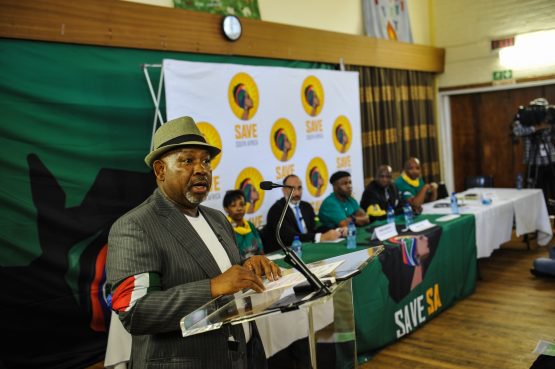This material belongs to: Moneyweb.
It is the responsibility of all companies to report all potential cases.
The recent spate of alleged corrupt activities involving state-owned companies (SOCs) and private sector companies such as McKinsey, KPMG, SAP and most recently, Software AG, call for leaders to play an active role in rooting out corruption and improving good governance in both the private and public sectors, writes Busa president, Jabu Mabuza and vice president, Martin Kingston.
Business and the public sector must nail their colours to the mast and take decisive action to root out corruption in all its forms. Remaining silent is not an option for society given both the moral and economic imperative and associated cost of failing to decisively address corruption.
A positive and attractive investment environment is fundamentally undermined by corruption in any form.
There is rising perception, underpinned by many surveys and indices and highlighted inter alia by the Gupta email leaks, that there is an increased level of malfeasance in South Africa within both the public and private sectors.
Although the 2016 Transparency International Corruption Perceptions Index ranked South Africa 64 out of the 176 countries listed, South Africa was found to be the most corrupt country in Africa by respondents in the Global Corruption Barometer on Africa.
While, according to recent Corruption Watch data, local, provincial and national institutions are still the primary areas of corruption complaints (at more than 20% of total incidences of corruption each), it is of extreme concern that the level of corruption within the private sector has doubled from 6% of the total in 2015 to 12% currently. Similarly, there has been a worrying increase in corruption trends with respect to bribery (20% to 24%) and employment (8% to 14% in 2016), just as procurement corruption and abuse of power remain at elevated levels.
This depicts an extremely poor picture of the country and is cause for great concern, given the substantial impact of corruption on the economy. Corruption not only discourages long-term and foreign direct investment but also diverts limited public financial resources that are required both to provide much needed social support as well as to stimulate the economy and create jobs. Furthermore, it increases the risk of further sovereign ratings downgrades, with extremely negative ramifications for the country.
The cancer of corruption needs to be excised completely if South Africa is to unlock its economic growth potential, create much-needed employment, address poverty and inequality and thereby achieve critical social cohesion.
Every effort must be made to thoroughly investigate acts of corruption and maladministration and to root these out in all sectors of the economy, both in the public and private sector.
A critical determinant in turning the tide against corruption is recognising that South Africa needs to address a lack of effective, competent and capable governance. Corruption will continue to go unchecked unless and until proper accountability, coupled with transparency and capable, credible oversight measures are put in place.
An additional cause for concern is the country’s wholly inadequate track record in successfully prosecuting corrupt activities. Despite allegations of corruption and money trails that could or should be investigated, many parties are unwilling to step forward and to report or act on the issues. People must be encouraged to take forward allegations without fear or favour, in the full confidence that the authorities will act honestly, properly and expeditiously.
As noted above, it is the responsibility of all companies to report all potential cases (be they internal or external) to prosecuting authorities who should then act professionally and in accordance with the provisions of the law.
A workable solution needs to encompass a number of features:
- The highest ethical standards, levels of accountability, good governance principles and an appreciation of the ramifications of corruption in both the public and private sectors must be implemented and enforced.
- Culprits need to be appropriately prosecuted and named and shamed.
- All institutions – both state and business – must be transparent in identifying and dealing with corruption.
- All procurement processes must withstand scrutiny and be conducted in an open, transparent and legitimate manner.
- Shareholders must not interfere with the day-to-day administration of entities. Competent and capable boards need to be put in place with responsibility for overseeing the conduct and actions of management.
Poor governance in both the public and private sectors poses a serious threat to South Africa’s economic growth potential and undermines the moral fabric of society. Decisive action and condemnation by all the leaders in society is urgently required to prevent the current and growing levels of corruption from fundamentally undermining the promise of a stable and prosperous South Africa.
Jab Mabuza is president and Martin Kingston vice president, of Business Unity South Africa.


